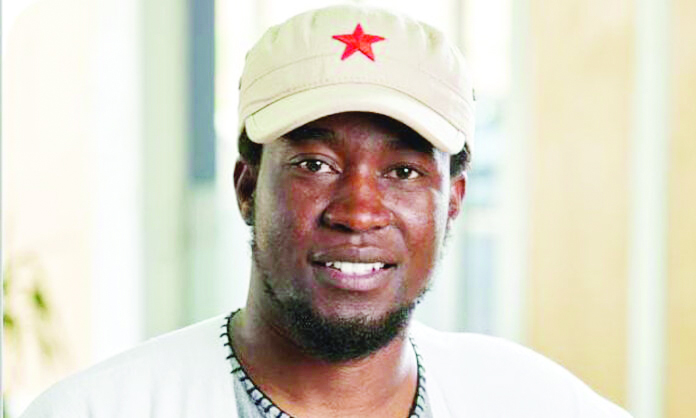Affirmative Repositioning movement leader Job Amupanda has accused the government of “playing theatrics” with citizens after Cabinet recently approved a study to gradually remove the redline. Last week, Cabinet proposed a feasibility study to be conducted over the next two years to assess the potential impacts of removing the fence.
“The study will inform plans for creating disease-free zones within the identified areas, including Mangetti, Karikubis, Tsumkwe, Mangetti East Farms, Mangetti West and Onalusheshete Farms, Ombuga, Omutambo Uomawe and Sesfontein,” reads a Cabinet note.
While this has been seen as a silver lining in the long-awaited removal of the infamous veterinary cordon fence, known as the redline, Amupanda is unimpressed.
Speaking at a press conference yesterday, he branded the decision misleading and false, as a similar feasibility study was already conducted in 2014 by the ministry of agriculture.
He said the government is “using a sensitive issue to manipulate people into voting for the ruling party.”
“One thing we need to do is expose the government for what it is, and expose who is in charge of governing this country,” said the activist.
Displaying a document to the press, Amupanda questioned the need to reconduct the study.
“There is already a feasibility study that was done 10 years ago, and they [the government] spent a lot of money on that study. All stakeholders were already consulted. Are you telling me no one in the Cabinet remembers that?” he questioned.
In his words, the government is trying to “bamboozle” the nation.
Feasible
The document in question argues that “the removal of the redline will create a unified livestock industry, as opposed to the current situation where mostly white farmers are allowed to access high-priced markets in Europe.”
Among the many objectives supporting its removal, the document also states, “35 000 jobs should be created annually, with agriculture seen as the main driver. A farmer who currently employs 2-3 people may employ at least five in the long run if high-value markets are made available.”
Outdated
Despite a comprehensive study comprising over 300 pages, which is said to have cost the government N$2 million at the time, agriculture minister Calle Schlettwein said it is no longer feasible.
“Yes, a study was done on whether to remove the redline or not, and the conclusion was to remove it. However, as you know, in 2015, we had another outbreak, which changed the situation,” he said.
He added: “After the 2015 outbreak, we, of course, could not proceed with the same project based on the outcome of the 2014 report.”
Some communities affected by the 2015 foot-and-mouth outbreak were not impacted before, which contributed to halting the study’s implementation.
The newly-proposed feasibility study, the minister said, will provide information on what infrastructure needs to be built, as well as the costs and timeline – details the previous study lacked.
“We will now look at the possible implications, particularly if the scenario from the 2015 outbreak is considered,” he said.
Ultimately, Schlettwein stated that the removal of the apartheid-era boundary remains the goal.
Court case
Amupanda, who has been at the forefront of the fight against the redline, will return to the High Court today, seeking its complete removal.
He initiated the case in 2021 against the government after veterinary officials at the Oshivelo Veterinary Checkpoint allegedly confiscated meat from him, which he attempted to smuggle from north of the redline.
The government remains adamant about getting the case dismissed.
“Their [government’s] argument in court is a completely different story. They are arguing about why I have a 32-day account, and that I am wealthy and have received fishing quotas,” said Amupanda, accusing the government of deviating from the core issue, which is the removal of the redline.
Since last September, the activist has been seeking financial support for his legal costs.
Despite various attempts by his lawyers to encourage public contributions to the legal battle for the removal of the controversial fence, at the time, only N$2,200 was collected from the public.
When questioned about this, Amupanda, who appears to be fighting the battle alone, said he still has not received substantial support from the public.
He has also appealed to the court for a protective costs order in case he loses the case.
The academic is engaged in a lone legal struggle against the government and the Meat Board, who have hired four advocates to oppose him.



